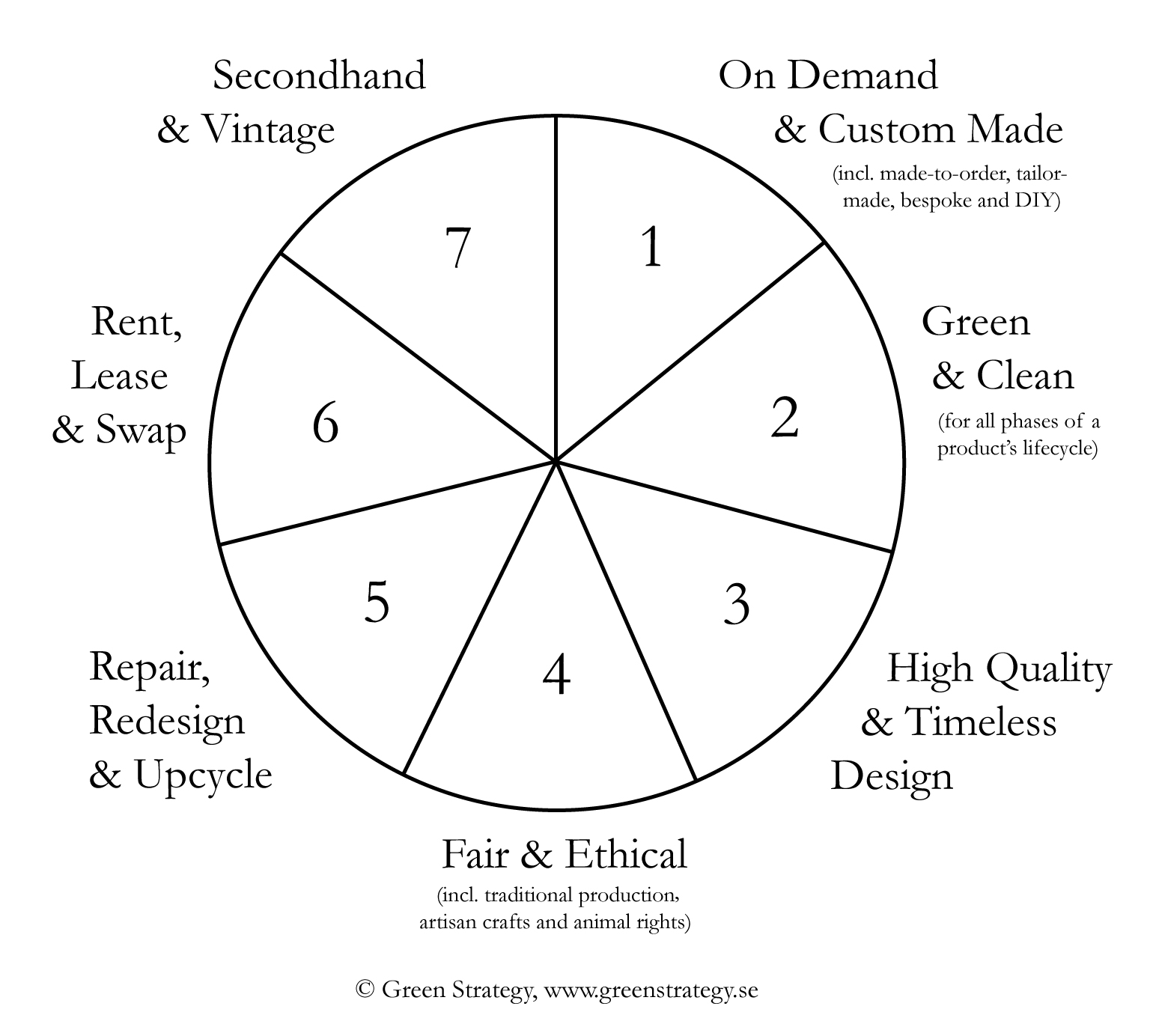Cape Town Sustainable Fashion: Redefining Style with Moral Options
Cape Town Sustainable Fashion: Redefining Style with Moral Options
Blog Article
Keep Ahead of the Curve by Discovering Innovative Fashion Patterns
In a sector as dynamic as fashion, remaining in advance entails even more than just following present trends-- it requires an exploration of advancement. The convergence of innovation and fashion proclaims a new age of consumer engagement.

Accepting Smart Textiles
Over the last few years, the style sector has experienced a transformative change with the assimilation of smart fabrics, a cutting-edge advancement that mixes modern technology with material. This advancement stands for not just a fusion of visual appeals and capability yet also a significant leap in the direction of sustainability and personalization in vogue. Smart fabrics, also known as e-textiles, installed advanced electronic devices such as sensors and conductive strings within the fabric, enabling garments to interact with the wearer or the atmosphere.
These textiles are developed to keep track of physical parameters, such as heart rate or body temperature level, providing real-time health analytics. Beyond wellness applications, smart fabrics are additionally being utilized for adaptive apparel, which can change color or pattern in action to ecological stimuli, thus offering a dynamic style experience.
Additionally, the advancement of energy-harvesting fabrics that produce power from movement or sunshine is leading the way for self-dependent wearable innovation. This technology is interesting ecologically mindful consumers and designers aiming to minimize the environmental footprint of fashion. As r & d in this field breakthrough, clever fabrics are anticipated to end up being significantly prevalent, reshaping the landscape of modern style with their multifunctional abilities.
The Rise of 3D Printing
Transforming the manufacturing landscape, 3D printing has emerged as a game-changer in the garment industry. This cutting-edge modern technology has allowed developers to push the limits of creativity, producing intricate and customized garments that were formerly unimaginable. By leveraging digital design and additive production, 3D printing promotes the development of complicated geometries and patterns, permitting developers to trying out new structures and frameworks.
A noteworthy advantage of 3D printing in style is its ability to generate on-demand, reducing waste and decreasing stock needs. This effectiveness not just enhances production processes but also enables rapid prototyping, enabling designers to bring their visions to life in a shorter timeframe. Moreover, 3D printing supports personalization to a degree unequaled by traditional methods, providing individualized fits and special styles customized to individual customer choices.
The surge of 3D printing has likewise democratized style, making it easily accessible to arising developers who can now fabricate top quality items without significant economic investment in conventional manufacturing framework. As innovation proceeds to advance, the garment industry is positioned to harness the full potential of 3D printing, checking out new materials and techniques that will definitely redefine exactly how style is developed and produced.
Lasting Fashion Advancements
As the apparel industry comes to grips with journalism demand for ecological duty, sustainable fashion innovations have emerged at the forefront of transformative change. The expanding awareness of eco-friendly influence has actually fueled a change in the direction of more eco-conscious methods and materials. Developers and brands are currently prioritizing sustainability, incorporating approaches that decrease waste and reduce carbon impacts.
One considerable growth is the rise of circular fashion, which emphasizes recycling and upcycling to expand the lifecycle of garments. This strategy not only decreases waste yet likewise encourages customers to take on a much more conscious approach to clothing usage. In addition, using sustainable products, such as organic cotton, hemp, and recycled polyester, has actually obtained grip. These materials require much less water and energy throughout manufacturing, substantially lessening ecological influence.
An additional innovation lies in the adoption of ingenious dyeing methods that make use of all-natural dyes or waterless procedures, thereby decreasing the vast amounts of water and chemicals typically made use of in fabric dyeing. Furthermore, developments in biotechnology have actually brought about the creation of lab-grown leather and textiles, providing ecologically pleasant and cruelty-free choices to traditional products. With these pioneering efforts, the apparel industry is making meaningful strides in the direction of a more lasting future.

Tech-Integrated Apparel
Tech-integrated apparel represents a groundbreaking combination of fashion and technology, improving exactly how people connect with their apparel. This ingenious domain is marked by the inclusion of smart fabrics and embedded electronic elements, boosting both functionality and visual allure. From physical fitness trackers embedded in sportswear to warmed coats regulated via smart device apps, tech-integrated apparel provides consumers extraordinary benefit and flexibility.
Introducing brands are driving this fad, concentrating on developing garments that reply to environmental stimuli or individual commands. For circumstances, some garments can change color or pattern in feedback to temperature changes, while others integrate biometric sensing have a peek here units to monitor health metrics like heart price or anxiety levels. The smooth integration of innovation into fabrics likewise prolongs to ecological sustainability, with efforts to create self-cleaning fabrics or garments that change to climate condition, thus minimizing the need for multiple layers.
Furthermore, the development of wearable technology is not simply limited to clothes however includes devices like watches and eyewear, additional expanding the extent of tech-integrated style. As the market proceeds to innovate, the possibility for personalization and personalization in clothing grows, offering customers unique, tech-enhanced style experiences that provide to their specific requirements and preferences.
Future of Virtual Style
In recent times, the future of digital fashion has become a transformative force within the sector, leveraging innovations in electronic modern technology to redefine exactly how fashion is produced, experienced, and consumed. By integrating augmented truth (AR), online reality (VR), and 3D layout tools, developers can now craft interactive and immersive experiences that go beyond standard fashion limits. Digital fashion allows for the development of garments that exist only in digital settings, using countless opportunities for development without the limitations of physical manufacturing.
This digital shift not only offers opportunities for innovative expression yet likewise addresses sustainability worries intrinsic in typical fashion techniques. Cape Town Sustainable Fashion. By eliminating the demand for physical resources, virtual fashion decreases waste and reduces carbon impacts. Furthermore, the surge of virtual style lines up with the increasing customer need for tailored and distinct experiences, as digital garments can be customized and customized to private preferences easily

Verdict
The apparel industry's future lies in the combination of sustainable techniques and cutting-edge technologies - Cape Town Sustainable Fashion. Smart fabrics and tech-integrated clothing are improving capability, while 3D printing provides opportunities for modification and waste reduction. Lasting style, with circular methods and eco-friendly products, shows a commitment to environmental stewardship. In addition, online fashion is positioned to redefine consumer interactions. Adjusting to these trends is important for brands looking Go Here for to stay competitive and relevant in this swiftly advancing landscape.
In current years, the style market has actually experienced a transformative change with the combination of wise fabrics, an innovative development that blends innovation with textile.As the style sector grapples with the pushing need for ecological obligation, sustainable fashion Read Full Article technologies have actually arised at the center of transformative adjustment.In recent years, the future of virtual fashion has actually emerged as a transformative pressure within the industry, leveraging advancements in electronic modern technology to redefine exactly how style is developed, experienced, and eaten. The surge of virtual style straightens with the enhancing customer demand for unique and personalized experiences, as digital garments can be personalized and tailored to individual preferences with ease.
The fashion market's future lies in the combination of innovative technologies and sustainable methods.
Report this page